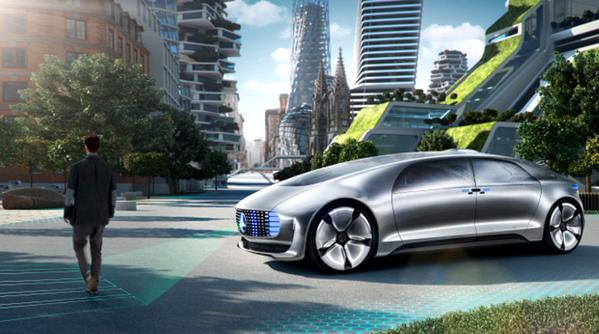
GM’s President believes the car industry is about to go through a major transformation.
The auto industry will change more in next five years than prior 50
I tend to agree and we have covered this topic before. One thing is certain. There will be losers and there will be winners. Those who prepare today might be able to capitalize. In addition to the article above, here is a more comprehensive view on the subject matter.
Self-driving cars are expected to change the way we live, work and interact with each other. So much so that some expect this change to be in full swing by 2025. While I have my doubts, it is an important trend to follow if you are an investor.
For instance, this trend has the ability to decimate the tracking industry while other multi-billion dollar companies will seemingly appear out of nowhere. Let’s take a look at some of the other probable outcomes.
- Mind-boggling cost of overhauling our entire road system, traffic management and signposting. Or insurance regulations. Or driving tests. Or road tax. Or liability issues. Someone will make or lose a lot of money here.
- Road death is the eighth leading cause of death on the planet, with between 90% and 95% of car accidents the fault of human error. The economic cost of road accidents is estimated to be around $277bn in 2013.
- City design will change enormously, even just in the short term. With great swathes of city real estate covered in car parks, self parking cars can cut down on that dramatically.
- Fuel savings will be immense. Autonomous cars drive consistently and economically, without man’s strange insistence of moving one, righteous, car up the queue by overtaking, and aggressively lane-changing.
- Morgan Stanley projected autonomous cars could save the US $170bn in lower fuel costs, and another $138bn in congestion avoidance. And that’s just fossil fuels. Which could also be a thing of the past.
- Another option to charge your car is wireless induction charging – a primary coil is ferreted away in your garage floor, a secondary coil is incorporated into the floor of the car, and an alternating magnetic field charges the battery.
- Personal insurance will mostly likely become defunct, because as the car takes responsibility for safety, liability will shift to the manufacturers themselves, with the ABI – the Association of British Insurers telling Factor: “The key change – and the potential shift to product liability – comes when the driver is not expected to oversee or monitor the vehicle and when they have ceded full driving responsibility to the car itself.
- ‘Sleeper cars’ will become available for long journeys where you’ll simply set off at night, tuck yourself into the incorporated bed, with blacked-out windows if there are windows at all, and wake up right outside your destination, be it Land’s End to John O’Groats, or a cross-Europe trip.
- Freight will be completely automated, putting every single lorry driver out of work. Deliveries will be automated, using the highways at night when there’s no congestion and economies of scale can be greater, without pesky regulations forcing weak-bodied professional drivers to take breaks.
- Rather than own a vehicle, you’ll most likely whip out your smartphone and call an automated car, just like we would an Uber taxi today. Prod your destination into the app and off you’ll go, automatically billed at the end.
And that’s just to name a few possibilities. How all of this will shake out and how long it will take is anyone’s guess. If the human race doesn’t manage to destroy itself over the next 20 years, as per my other forecast, this change has the capability of delivering massive gains to enterprising investors. Definitely put it on your “watch list”. ![]()
